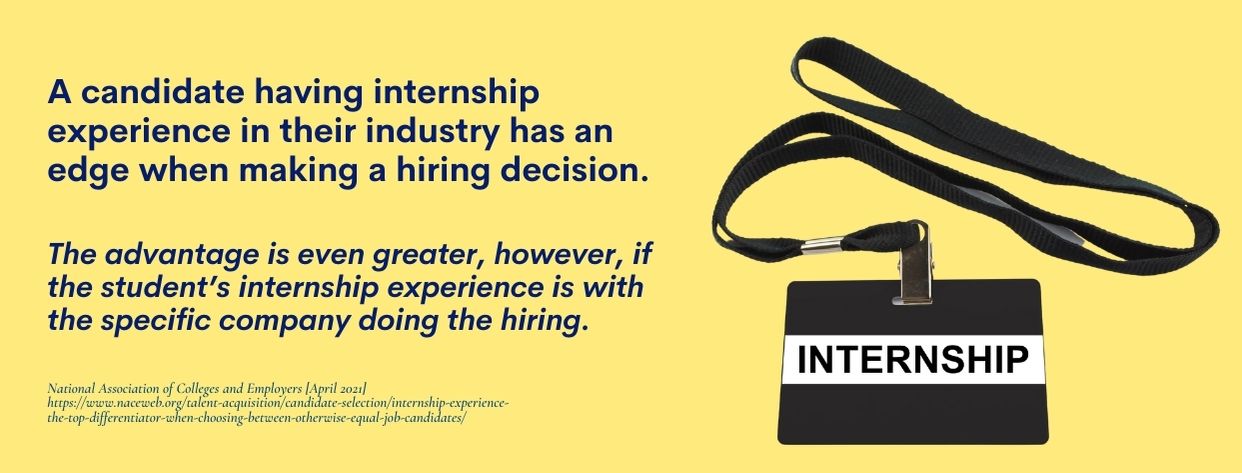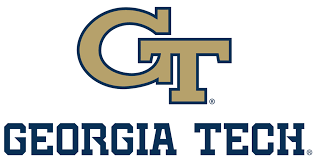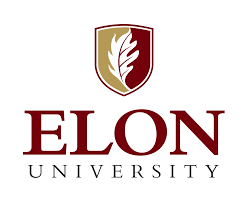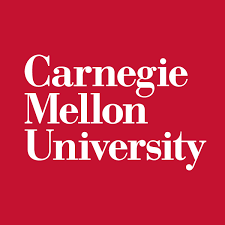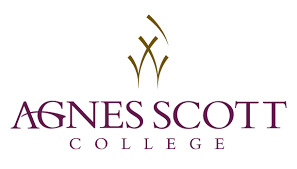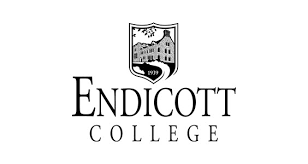Find Your Perfect School
Have you ever considered getting work experience while studying? This could be your first step to the career that you’ve always wanted! When the Covid-19 situation subsided, many companies went back to offering different student experiential opportunities in the form of co-op and internship programs.
Cooperative education, also known as a co-op or an internship program, offers opportunities for high school or college students interested in applying their skills and knowledge as they gain experience in their chosen careers, promising them a great future!
As an intern, a student can reinforce one’s resume or sharpen one’s skills and competencies in leadership and more, as they both offer a wealth of benefits.
Best of all, signing up for a co-op or internship gives the student a chance to earn while practicing campus-based theory in the professional world, getting ahead of the pack and securing that perfect job.
This makes sense because more than half of the total employers prefer hiring candidates with experience from these co-op or internship programs, according to a national survey by the National Association of Colleges and Employers.
Overview:
Cooperative education, also known as co-ops and internship programs, offers opportunities for high school and college students interested in applying their skills and knowledge and gaining experience in their chosen careers. From reinforcing one’s resume to honing one’s skills and competencies, they both offer a wealth of benefits. Dive into the details of how signing up for a co-op or internship gives you a chance to earn while you practice campus-based theory in the professional world, getting ahead of the pack!
Cooperative Education (Co-op)
This program allows you to have an in-depth experience of your career path, where a student alternates paid employment and formal studies. It presents a brilliant opportunity for students to:
- Explore career interests
- Build a good resume
- Promote professional development
- Develop confidence and communication skills
- Find good opportunities after graduation
Co-ops allow you to gain real-world experience while you’re in school by working directly with a business. Getting into a co-op is a surefire way to build your resume while earning an extra paycheck.
In the current era of Covid 19, students may not have as many options for co-ops as they do for internships, but the former also offers many benefits! Most schools do not include them in their curriculum because they don’t offer credit. Some co-ops, however, provide financial compensation to students, so they can afford the costs associated with their programs.
Through co-ops, students are able to gain unrivaled experience while working full-time in a relevant field. In addition to building their professional network and enhancing their resumes, these experiences can be extremely valuable for aspiring professionals. It’s best to contact a prospective company’s human resources department to ask about co-op or internship programs.
Internship
Internships will provide you with an opportunity to experience the working environment, often in the specific industry related to your field of study. A student has the opportunity to:
- Experience professional growth
- Increase their network of connections
- Explore different careers
- Be exposed to upper management
- Learn new skills
Internships are available in numerous fields, including engineering, marketing, graphic design, information technology, and many more, and can range from a week to a year. This “on-the-job” experience can be very valuable, so don’t let the restrictions of Covid 19 stop you from applying.
Many degrees incorporate internships into their curricula, usually giving credit for internship completion whether they are paid or unpaid. Those short experiences give participants a glimpse into careers or fields before committing fully to them. Each student has different reasons for pursuing an internship.
Learners can benefit greatly from internships by putting their training into practice, networking with industry professionals, getting their foot in the door with a potential employer, and improving their resumes before graduation.
Co-op vs. Internship
Co-ops and internships have a few things in common. While working towards your degree, both are excellent opportunities to gain valuable work experience and potentially earn academic credit.
Co-ops and internships differ primarily in their duration.
Most co-op students alternate their academic studies with longer periods of full-time employment, giving them in-depth experience. Despite shorter duration, internships are equally valuable in providing hands-on learning and professional exposure, allowing students to explore careers they like (or don’t like).
Another notable difference is that Co-ops are usually well compensated, while internships have a low chance of being paid.
Why Not Work-Study?
Typically, work-study jobs take place on campus. It’s possible to work as an office assistant for a school department, organize books in a university library, or manage the campus convenience store, but jobs like these aren’t always related to your course, and they also depend on whether you’re a student. In other words, if you leave school, you probably won’t be able to work.
To put it simply, Co-ops and internships will give you relevant experience that work-study won’t.
Landing an Internship
Deciding for an internship means interns need to exert effort in finding the best one. You’ve probably also realized how difficult it could be to search for internships in the U.S. but fret not. Your dream internship is more than possible, and finding an internship in the U.S. has many benefits.
Interns will be able to make a substantial impact on your career by finding the right internship, and showing employers that you have thought about what you want to gain from this experience will be more appealing to them. Since interns will be enrolling in one of the best colleges in the U.S., take advantage of their University Database. It’s possible that some companies have formed close partnerships with your university in which previous students have interned.
Your search for U.S. internships can also be boosted by using social media sites. When interns don’t find an internship listing for a company they love, you also have the liberty to create your own internship. Reach out to host employers, explain the position you’re interested in, and let them know what you can bring to their company.
When applying for an internship, make sure to prepare the two most important documents, such as a Cover Letter and your CV or resume. Be sure to customize your cover letters, as employers usually like to see that you have researched the company and the position before applying. If the employer hasn’t contacted you, don’t be worried. The review process takes time, and you may need to wait a while for a response. A host employer should be contacted or followed up one to two weeks after receiving your application.
Finally, if they’re interested in your application, you should be set out for an interview. Interns are being given the opportunity to tell them about themselves, why you want to intern with them, and most importantly, allow you to ask and assess if you’ll be a good fit for what they’re looking for.
Reasons to Enroll in a Co-Op Program
A college education should include experiential and situated learning. Co-op offers students this opportunity, which allows them to gain exposure to the industry while studying and increases their chances of getting employed after graduation. Co-op work placements provide students with on-the-job experience in their respective fields.
Learning new skills can make you more competitive at work. By being enrolled in a co-op program, you can understand how to behave in the workplace. Your transition from school to the workplace depends on your ability to behave professionally in any business environment. With a co-op placement, you can be sure that this is the industry you wish to work in without having to commit long-term.
If you are in a field where skills required in your industry are not taught in the classroom, you may find that you need to develop them in order to advance professionally. You need every advantage you can get in today’s job market, and your co-op experience will set you apart from the competition.
Companies value prior work experience more than simply academic credentials, and most will give preference to applicants who have worked in the industry previously. After you have experience in your field, you become a more rounded applicant, which gives you much more confidence when you apply to and interview for jobs.
Programs with Benefits
Institutions offering cooperative education and internships take an active role in offering specific opportunities, getting in touch with advisors, or getting feedback from the students. Colleges in the U.S. that offer internship programs and co-op programs can offer students the best of both worlds, allowing them to try out possible careers, put their skills to work, and reflect on the paths that an intern wants to pursue.
Colleges Offering Co-op and Internship Programs
Northeastern University
Location: Boston, Massachusetts
At Northeastern University, students achieve extensive work experience before graduating. The university aims for students to develop new skills, gain a deeper understanding of their chosen industry, and eventually put theory into practice.
The university offers a wide network of academic advisors, program coordinators, and international counselors who will provide help and support. University coordinators are available to guide their students in identifying different positions that best fit their skills and interests.
According to Northeastern University, more than 90 percent of their undergraduates complete at least one professional co-op before graduating. With the flexibility of choosing to graduate between four or five years, students can complete their degree with two to three co-op programs, with more than 2,000 affiliated employers worldwide to choose from.
Students may also “test the waters” by going over Northeastern University’s list of websites for internships. Typically, the best time to begin sending out your applications is between October and January.
Drexel University
Location: Philadelphia, Pennsylvania
Drexel University offers a blend of classroom learning and extensive work experience before graduation. Internships are a great way for their students to gain valuable professional experience in their field of choice. The university offers a list of internship resources to explore a new field and expand its network.
Drexel also enables their students to engage in hands-on experience through their cooperative education program. Usually, a student spends six months working while the other six months are intended for learning in class. A student has more than 1,600 companies to choose from and earns an average of more than $16,000.
Drexel also encourages their students to pursue co-op programs, such as fashion design and film, from companies outside of Philadelphia. This allows their student to experience a new work environment and gain new connections.
Georgia Institute of Technology
Location: Atlanta, Georgia
The Georgia Institute of Technology offers co-op and internship programs to their students, with some help from their undergraduate advisors. Students can complete their programs full-time, part-time, or while taking classes at another university. Campus housing is conveniently available for students who will be working within Metro Atlanta.
Georgia Tech has designed an internship program that puts its student’s formal education and practical work experience in harmony. GT Internships can flexibly work full-time or part-time for a minimum of fourteen weeks during the fall or spring semesters or eight weeks for the summer. Moreover, a full-time employment position entails a minimum of thirty-five hours per week, while a part-time position requires at least twenty hours.
With its 100 years of partnerships with some of the best employers in different industries, Georgia Tech is committed to work-integrated learning that can help interns reach their long-term goals. Students can take their time working through multiple semesters, finishing a five-year program with a co-op designation on their diploma.
Massachusetts Institute of Technology
Location: Cambridge, Massachusetts
The Massachusetts Institute of Technology shares the onus of making the world better through education, innovation, and research. MIT has various internship and co-op options open to undergraduates, graduate students, and graduate students.
MIT has a wide array of programs for its students to choose from. MIT offers internships in most of its departments, such as Advertising and Digital Marketing, Materials Science and Engineering, and Books Publicity. They have programs for students interested in product development, manufacturing, and research in science and technology.
The MIT International Science and Technology Initiatives (MISTI), MIT’s award-winning international internship program, provides opportunities for a student to grow in leading companies worldwide. MISTI also offers remote internships due to some challenges in travel.
Co-ops at MIT are focused on helping solve real-world problems through a six-month cycle. Students in the Co-op Program gain professional experience while being introduced to careers in research and development. Lincoln Laboratory project teams can often benefit significantly from the expertise of highly qualified co-ops, and a student is often invited back for additional internships. MIT offers a channel for their students to connect with their alumni for some career advice and networking.
University of Cincinnati
Location: Cincinnati, Ohio
The University of Cincinnati, a leading public school, offers co-op and internships in its top-rated degree programs. The school features some of the most helpful resources that enable students to find the best opportunity, including a directory of departments and an Internship Coordinator.
UC’s internship program will allow interns to enjoy the benefits of a regular internship, earn academic credits, and expand their record of experience in their transcript. Its curricular internship program aims to develop interns’ skills and practice them in real-life applications. Most internships will range from 8 to 12 hours per week in 14 to 15 weeks, but the schedule will vary per department and depend on the number of credit hours earned.
With 100 years of co-op experience, UC boasts of its high-paying co-op programs. Together with more than 1,300 companies, they can employ more than 6,000 students annually. Students work for 40 hours per week per semester, alternating with a classroom semester. Working full-time enhances the student’s learning experience, gaining a real-life understanding of their chosen field.
Berea College
Location: Berea, Kentucky
Berea College is a private institution where students can study for free. Berea offers programs centered on personal and academic development and envisions a world shaped by Christian values.
Berea offers a handful of internship opportunities. While supporting the institution’s commitment to engage students in their professional goals, the Internship Program supports students in planning and participating in internships. Berea has a step-by-step internship process that will assist interns from planning to submission and, finally, getting the job.
Berea recognizes the costs of doing an internship, so they want to ensure that interns can participate in one through their funding. Berea also encourages international experiences through the Center for International Education, provided the students qualify and have complied with the needed requirements. Check out their Office of Internships and Career Development for more opportunities and information.
Elon University
Location: Elon, North Carolina
A mid-sized private university, Elon University is known for its experiential and hands-on learning. Elon University encourages its students to get involved through small discussion classes, a motivated academic community, cooperative education, and internship programs.
Elon’s co-op program is designed to widen their students’ career options and help them gain practical experience that will attract employers. In terms of eligibility, only Sophomore, Junior, and Senior students with a minimum 2.0 GPA are allowed. However, special permission may be used for First-Year students. Students will be working for a minimum of 40 hours per credit received and may do multiple co-ops throughout their course.
Some majors, such as those from the College of Arts and Sciences or the School of Communications, require internships before graduation. Elon’s Director of Internships supports the students throughout their application process and work completion. Elon also has an international internship program with its affiliates.
Duke University
Location: Durham, North Carolina
Duke University’s mission is to produce students who are superior in intellectual growth and well-rounded leaders in their respective fields. Duke offers an extensive internship program to advance its mission, providing equal opportunity for all, including students with disabilities.
Duke’s internship program is centered on gaining practical experience and career advancement. Students are asked to render 240 hours or more of supervised work with a gross compensation of around $1,500. Credit is awarded to the student’s academic record after approval from the department involved.
Given the financial challenges brought about by unpaid or low-paying internships, Duke has an Internship Funding Program. Through a selection committee, students are given appropriate funding to sustain themselves during the internship period.
Duke highly encourages diversity, providing career options to everyone through their Student Affairs.
Stanford University
Location: Stanford, California
Stanford University prides itself on highly ranked graduate programs. In its pursuit of learning and innovation, Stanford launched the Honors Cooperative Program (HCP), which allows working professionals to earn a graduate degree. HCP offers this program in the fields of Engineering, Humanities and Sciences, Medicine, and Education.
Stanford Health Care also offers an Administrative Internship Program designed for students eager to experience first-hand healthcare operations and clinical innovation. The program which lasts for 8 to 12 weeks every summer also holds extensive seminars, social events, and career guidance. With this program, students are sure to gain practical experience in addition to their academic learning.
Stanford makes sure that its students get the best advice from the industry. With skills that range from building an outstanding resume to discovering career opportunities, students at the Stanford Alumni Mentoring program transform from career-driven learners to industry front-runners.
Cornell University
Location: Ithaca, New York
Cornell University is a private research school that focuses on making a significant contribution to the nation and the world in all fields of knowledge to improve quality of life. Its Graduate School, which aims to advance student experience and promote diversity, offers various internship programs. Application deadlines are usually set between December and January.
In the spirit of promoting global connectivity and going beyond the university community, Cornell offers international internships in countries such as Ecuador, India, and Japan, to name a few. This program includes an introductory course, 7 to 8 full-time internships, and a post-engagement course.
Cornell’s co-op program allows interns to take their skills to another level through a proven career plan. Undergraduate students who have completed two semesters with remarkable academic standing may apply for the program. Students may work for 40 hours per week during the fall or spring semester, with an average monthly salary of $4,686.
Another Co-op program available at Cornell is their Engineering Cooperative Education Experience. During your co-op, interns can gain knowledge and skills that are relevant to industry, government, and society. By pursuing a cooperative education, you will be able to create a career plan that enables you to make informed career decisions for the rest of your life.
Interns have to be undergraduate students to qualify and have at least finished two semesters. Interns must be taking an engineering major with an excellent academic standing. Your undergraduate coursework must also be completed following your work experience.
Carnegie Mellon University
Location: Pittsburgh, Pennsylvania
Focusing on global research, Carnegie Mellon University is a private institution that promotes hands-on learning. During the summer months, Carnegie Mellon offers numerous opportunities for academic development and research.
The Carnegie Mellon – Dietrich College of Humanities and Social Sciences offers the Pittsburgh Summer Internship Program (PSIP) that connects students with local nonprofit organizations or growing start-ups. PSIP offers students a chance to have their first internship experience. It is open to undergraduate students of the college and may receive a stipend amounting to $3,000.
The College of Engineering at Carnegie Mellon offers a Cooperative Education Program that offers electrical and computer engineering students a chance to gain meaningful experience working alongside industry experts. Co-op assignments are typically undertaken from January to August or from May to December, and students are provided with a preparation list for the application.
Rochester Institute of Technology
Location: Rochester, New York
The Rochester Institute of Technology is a community where passionate, socially aware, and intellectually curious minds are. RIT provides a wide range of opportunities, including internship programs and cooperative education.
RIT’s Internship Program will expose interns to a professional environment that is both scholastic and practical. Part-time or full-time internships are available to students, provided they are related to their field of study. International internships are also possible through RIT’s partnership with Global Experiences.
RIT’s academic programs are designed to give relevant experience by integrating classroom and cooperative education. RIT has partnered with over 3,400 hiring organizations, some of which are part of Fortune 500 companies. Eligible Students get real-world work experience and professional mentorship by working for a minimum of 35 hours per week on their terms.
Purdue University
Location: West Lafayette, Indiana
Purdue University, a public research school that focuses on innovation, offers the Pathmaker Internship Program. Through online registration, students can connect with and reach out to companies and organizations for opportunities. As interns become full-time employees, corporations will reduce future turnovers while students develop their skills.
Co-op programs are available in several colleges: Agriculture, Engineering, Health and Human Sciences, Liberal Arts, Management, Pharmacy, Polytechnic, and Science. Students looking into gaining 12 to 22 months of experience will earn an average salary of $3,000, depending on their discipline.
With innovation as a core value, Purdue’s College of Engineering and the Office of Professional Practice developed a new co-op model called Learning While Working (LWW). By working full-time for an entire year, a student will receive a certificate of completion. LWW aims to shorten the time to finish a degree by integrating co-ops and online learning.
There are three and five-session co-op programs offered by the Office of Professional Practice (OPP). By the time they graduate, a student who is selected for Co-op work will have gained 12-20 months of experience. These are all paid, and a student completing the Co-Op Program requirements receives a certificate of achievement recognizing their unique experience and dedication to experiential learning.
Agnes Scott College
Location: Decatur, Georgia
Agnes Scott College is a private women’s college that thrives in transformative learning. Since internships directly relate to your major, Agnes Scott College places high emphasis on them. The college offers internships through career communities in the fields of:
- Health, Sustainability, and Science
- Technology, Business, Media and Communication
- Nonprofit and Arts
- Education
- Government, International Affairs, Peace Corps, and Pre-Law
Through these communities, students may find different internship partners, workshops, and career guidance.
To earn academic credits, students will have to work for 10 hours a week in 13 weeks. Internship Instructors will also be hands-on throughout the internship course, guiding the student through discussions and presentations. Students may also opt for an independent internship, wherein they will be doing one-on-one consultations with a faculty sponsor.
Endicott College
Location: Beverly, Massachusetts
Endicott College believes in putting learned skills into practice. With this, an Endicott student is required to complete an internship, following a distinctive four-year program. According to Endicott College, this program ensures their graduates’ employment after graduation.
An Endicott student can gain experience at the start of their college life. First-year students and sophomores at Endicott College must complete a 120-hour internship each year. This type of internship is more exploratory and is influenced more by the student’s interests.
Additionally, students must complete a semester-long internship in their junior year and 14 weeks of full-time work in their senior year. This scheme allows the student to apply their learned skills in a professional setting fully.
Endicott College has also partnered with the Washington Institute and the New York Film Academy for those interested in learning various majors, including media and performing arts. Endicott guides their Career Center, and a student may connect with some alumni for mentorship.
Be on the Lookout
Highly competitive internships usually take more time to prepare. Start early! The best months to start sending out applications are in October and January. Sign up for online newsletters or email updates to be in the loop of any changes.
How Do I Get Started?
- Prepare – Take time to read through articles and experiences from other students. Interns will be surprised at what they’ll find out. Watch program videos and info sessions. This gives interns more insight into what you’re getting into. Talk to your school advisor or mentor.
- Take action – Create a plan. List down requirements from different institutions (you don’t want things to get mixed up). Review, polish, and submit your resume along with the other prerequisites.
- Ace that interview – After submitting your application, chances are you’ll be called in for an interview. Practice and prepare for some common interview questions. Stay calm and always end the interview on a positive note.
Your Resume Matters
Always remember that employers will not take too much of their time to go over your resume. It is important to emphasize your experiences that show why you’re the right candidate for the job. Organize your credentials in a way that would let readers understand them in one go.
Stay Secured
Most of the school and career websites, but just in case, here are some red flags to look out for:
- Charges – Recruiters will never directly ask for any payment. Always confirm any fees to be paid with the school you are attending.
- Account Specific Information – Bank Account Numbers, PINs, Passwords, Credit Card Information, and Social Security Numbers will never be asked. Never share this information.
- Too good to be true – When the offer is too attractive, stop and learn more about the program. Chances are there might be some hidden terms.
- Gut feel – When in doubt, it’s best to consult your internship advisor or teacher.
Launch Your Career
You can’t go wrong with either co-ops or internships. Choosing one program or the other increases your chances of career prospects after graduation.
Do not get too caught up in the terminology. Employers often use “co-op” and “internship” interchangeably or incorrectly, potentially resulting in missed opportunities.
Ensure you understand what an employer expects of you when discussing their programs. This will help you find the right fit. Ensure you carefully review each opportunity and never be afraid to ask questions.
So, look forward to your future as you expand your skills through an internship or co-op program today!
Getting Paid While Working a Co-op or Internship
Are you wondering if you will get paid while working a Co-op or Internship program but are afraid to ask? The primary reason for participating in either type of program is for the experience, of course… but a little change in the pocket wouldn’t hurt either, right?
The answer to this question depends on the company. Some companies may offer a stipend, salary, or another form of compensation for your work, while others may not. It’s essential to ask the company about its compensation policies before accepting a Co-op or Internship position… if that is important to you.
Points to Ponder
A co-op or internship is an effective and convenient way for students to gain relevant professional experience. Participants in cooperatives usually commit to multiple terms with an employer, either consecutively or over multiple years. This pretty much extends your undergraduate studies. On the other hand, internships offer a student the opportunity to gain professional experience before graduation, similar to co-ops.
An internship typically lasts about three to four months, and students work part-time during this time. Many degree programs incorporate internships into their curricula, providing credit for internship completion, but they could either be paid or unpaid, unlike co-ops which are guaranteed paid.
Students should consider their short- and long-term career goals when deciding between a co-op and an internship. It’s best to understand more about each one’s pros and cons before finally deciding which program to go for.
Related Link:

